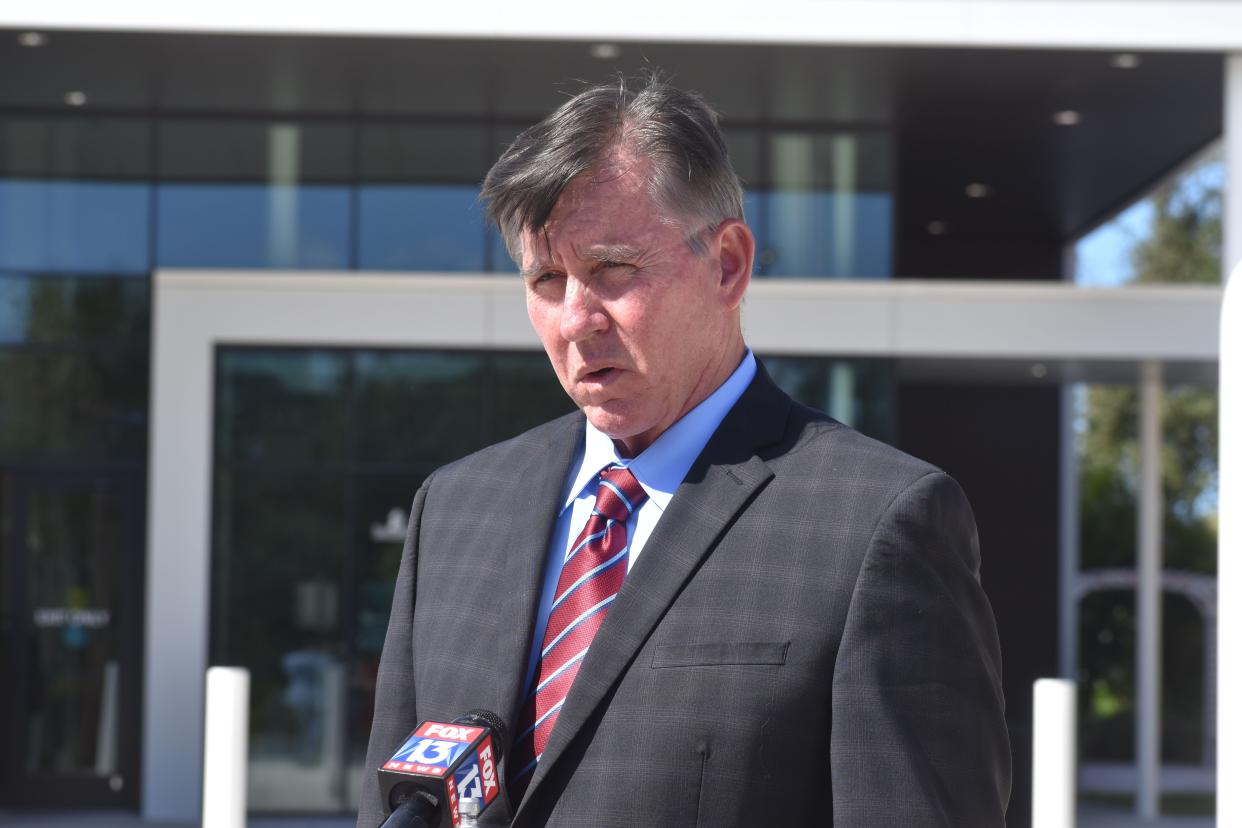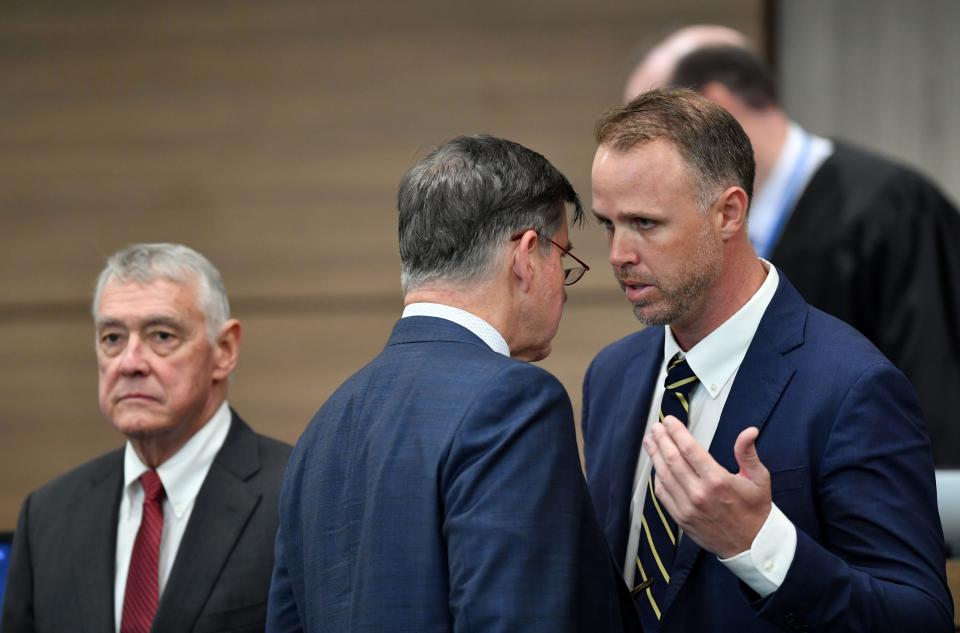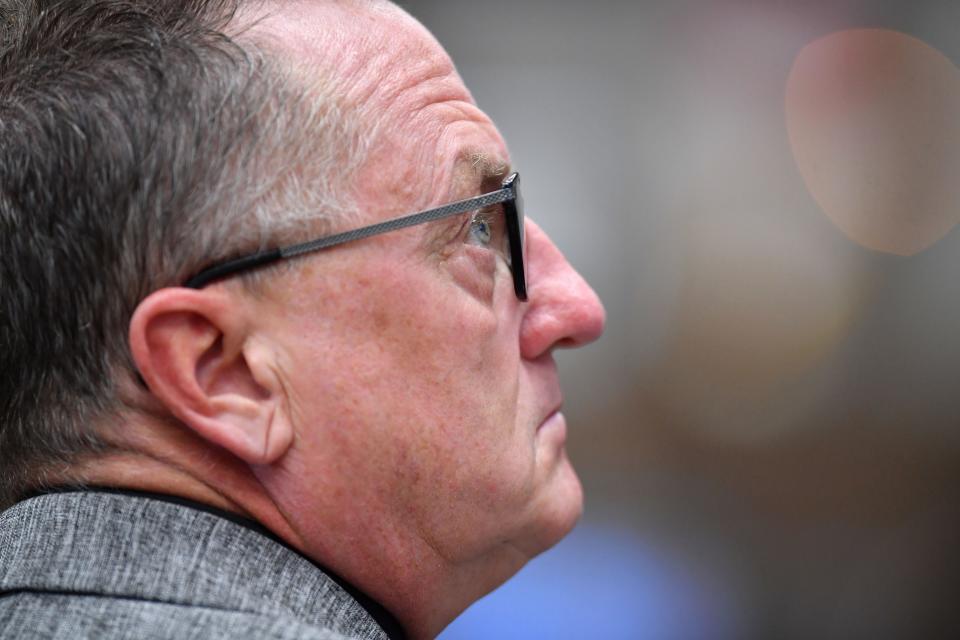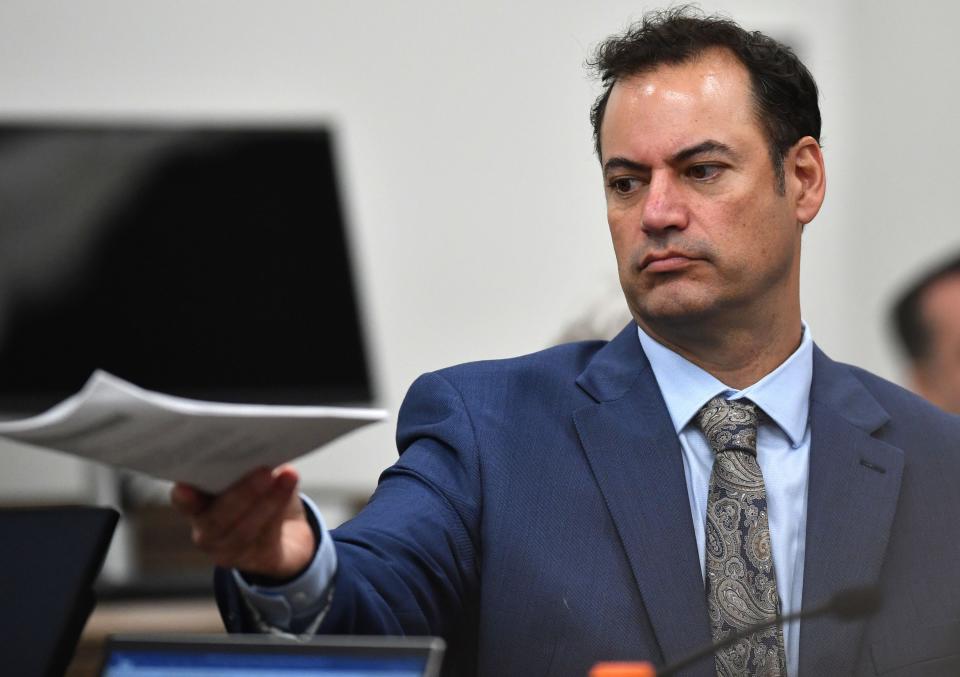Kowalski family attorney: Trial is about parents' rights to child's medical treatment

The lead attorney for the Kowalski family is contesting the narrative the defense for Johns Hopkins All Children's Hospital has presented, arguing that the reason the family and hospital are in court is to support parents' rights in deciding the treatment of their children.
Greg Anderson, attorney for the Kowalski family who is suing the hospital for $220 million, said they were in court because Beata and Jack Kowalskis' ability to decide what treatment was best for their child was not only questioned but it was taken away from them.
"I think the hospital's trying to portray this as saviors of the child abuse system," Anderson said. "And that's simply not the case. That's not what this case is about."
The case is about individual freedom and the freedom of parents to make decisions that are in the best interest of their children based on information they've gathered and the advice from their own doctors, Anderson said.
Keep reading: Kowalskis testify about personal, economic impact for damages
Defense presents its case: Defense witnesses continue to question Maya's CRPS diagnosis
In the first few weeks of the trial, witnesses called by the family's attorneys, as well as Maya, Kyle and Jack Kowalski testified the hospital interfered with Maya's treatment for her Complex Regional Pain Syndrome, a disorder that impairs the central nervous system and heightens pain sensations, after they placed calls into an abuse hotline following suspicions of child abuse and that the hospital's staffs' actions led to Beata Kowalski taking her own life.
Defense attorney Ethen Shapiro told media Thursday that the hospital decided to pursue this case to stand up for mandatory reporters across the nation as there has been a "chilling effect" of decreased reporting on abuse cases. Shapiro added they were also standing up for their own hospital staff who he said did what they thought was the best course of action for Maya after inconsistencies in her behavior and diagnoses.
The defense has also previously stated that the actions taken by their staff were in direct line with court dependency orders and guidance from the Florida Department of Children and Families.
The Kowalski family sued All Children’s Hospital in 2018 for battery, intentional infliction of emotional distress, false imprisonment, and medical malpractice, among other claims, more than a year after the family matriarch, Beata Kowalski, took her life following allegations she was abusing her daughter.
The family took 10-year-old Maya Kowalski to All Children’s Hospital in October 2016 after she complained of severe stomach pain, believed by the family to be a relapse of her CRPS.
Maya Kowalski was separated from her family, friends, and community following a Florida Department of Children and Families investigation and ordered by a judge to remain at the hospital. She remained separated for three months before reuniting with her father and brother shortly after her mother’s death.
Hospital executive director of revenue cycle speaks to fraudulent billing claim
The executive director of the revenue cycle for the hospital, Jason Bankert, reviewed the billing from the hospital to Kowalski's medical insurer, Aetna. He said there were 14 correspondences from the insurer from October 2016 through the beginning weeks of January 2017 asking for clinical documentation to ensure that the visitation was authorized.
As part of their complaints against the hospital, the Kowalskis filed a claim for fraudulent billing, stating the hospital billed for treatments for CRPS, while at the same time denying that Maya had the condition.
Bankert said if the hospital submitted claims for medical services that weren't being performed, the claims would most definitely have been denied either because there wasn't a medical necessity, or it hadn't been authorized.

It appeared there were 12 diagnosis codes, including for CRPS and child neglect, abuse, or abandonment, listed on a transaction report sent to the insurer as to services that were rendered.
On a Jan. 5, 2017, transaction document, CRPS, which had been listed as the first diagnosis, fell to the fifth spot and the child maltreatment diagnosis became the primary focus, indicating that most of the treatments rendered were towards that diagnosis, Bankert said.
When Nick Whitney, an attorney for the Kowalskis family, asked whether $500,000 was billed for CRPS treatment to Aetna, Bankert denied it.
“Johns Hopkins All Children’s Hospital billed $500,000 for a litany of services that were rendered, it wasn’t Complex Regional Pain Syndrome," Bankert said. "In fact, as I stated before, the vast majority of charges that we submit were tied to room and board, respiratory therapy, physical therapy, and occupational therapy.”
Jury views emails Beata Kowalski drafted to herself in Maya's voice

On Thursday, the defense presented the jury with several emails that Beata Kowalski had written and sent to herself while she and Maya were in Mexico for Maya's ketamine coma.
The Kowalskis took Maya to Mexico in mid-November 2015 after she was referred for treatment by pain management specialist Dr. Anthony Kirkpatrick, who diagnosed Maya with CRPS, after warm water therapy and the ketamine injections that Kirkpatrick gave Maya were not showing the results the doctor had hoped for.
The trip to Mexico came months after Maya first began experiencing her CRPS symptoms during a Fourth of July celebration and after the family visited Johns Hopkins All Children's Hospital, Lurie Children's Hospital of Chicago, and Tampa General Hospital in search of treatments to help then 9-year-old Maya, according to testimony from the courtroom.
The defense has pointed to the fact that the procedure was highly risky, with a 50% chance risk of death for Maya. Not only that, but the defense also in presenting their case, showed the jury that Maya had bacterial pneumonia due to being intubated for so long that had to be treated with antibiotics.
Attorneys for the family have argued that the ketamine coma helped to improve Maya's condition and following the procedure and the booster ketamine injections she received, Maya started getting stronger and was on the road to being able to walk again.
The emails, written to appear as though they were in Maya's voice, provide more insight into details about what occurred during the days Maya was receiving high doses of ketamine while in a coma.
The emails detailed the increasing doses of ketamine Maya received, how Maya's body was reacting while she was in the coma, and who came to visit her, as well as the first day after Maya awoke from the coma.
'My life is a lie': All Children's doctors, nurses testify in 'Take Care of Maya' trial
'Take Care of Maya' trial: Maya Kowalski testifies about hospital experience
Multiple times in the letters, it was referenced that Maya had a "superpower" because her body was able to metabolize the ketamine and other sedatives quickly.
"I have very high tolerance for drugs; if I was a horse I would be comatosed or dead already … but things are totally different when it comes to a girl with RSD, my metabolism is super fast."
Beata acknowledged in one email that the procedure was high risk, especially as Maya had immunodeficiency, poor nutritious status, and severe adrenal insufficiency. It also appeared Beata was aware that Maya was at high risk for complications like developing infection/sepsis during the coma, difficulty weaning off of the ventilator after the coma, needing blood transfusions, and going into total body failure/ death as a result of adrenal insufficiency.
Despite the risk of complications, Beata wrote that Maya had several things working in her favor including her young age, being in the early stages of RSD/CRPS, and the "hundreds of angels watching over me, and GOD."
In another email, it's mentioned that the tube in Maya's throat began to irritate her, causing her to gag and vomit one morning. Luckily Beata was in the room and able to react, with nurses coming in to suction out Maya's mouth and lungs.
Beata's email from the day Maya awoke from her coma detailed exactly what challenges Maya faced, including having difficulty breathing after having the tube taken out, nausea, hives breaking out, an elevated temperature, tremors, and coughing.

Pain management specialist defends his actions through deposition
Dr. Ashraf Hanna, the anesthesiologist who gave Maya ketamine injections following her time in Mexico, defended his actions which the defense questioned during a deposition that was played for the jury Friday.
“She was screaming,” Hanna said, describing Maya's condition the day before he sent her to the hospital. “She was crying from pain. Her mother stated that I cannot live - you know she’s in so much pain, she’s screaming, she’s up all night.”
Hanna saw Maya from January to October 2016, giving her approximately 55 ketamine injections with the doses increasing until he reached the maximum amount that he would give her of 24 milligrams per kilogram per hour.
Following several treatments in October 2016, Maya was not responding to the treatments and Hanna sent her to All Children's Hospital telling the defense he "failed to help her."
"There was nothing I could do," Hanna said. "I told the mother, that's the maximum I can do. I cannot give her anymore. She has abdominal pain. I need her to go to a bigger place that can maybe do some continuous infusion."
In case you missed it: Attorneys finish family's side, defense begins their case
More trial coverage: Case worker contests identity of voice in audio clips in 'Take Care of Maya' trial
Hanna became defensive in his deposition, firmly stating that he believed the ketamine infusions he was giving Maya were successful because it improved her quality of life, she was able to spend more time with family and friends doing activities she loved and provided relief from pain. Hanna said that any CRPS expert could tell the defense that patients with the condition have ups and downs, and they can have flare-ups.
Hanna, who said he'd done ketamine infusions with thousands of patients, said plenty of them had good and bad days, but that didn't mean that the treatments weren’t working. In Maya’s case, he again said Maya’s quality of life was improving.
Following Maya's stay at the hospital, Hanna saw her here once in January 2017 and again in June 2017, where he documented that Maya had improved by 60 to 70%. Hanna said there was a "good probability" that the ketamine he'd administered back in October 2016 could have been part of the reason for the improvement.
Gabriela Szymanowska covers the legal system for the Herald-Tribune in partnership with Report for America. You can support her work with a tax-deductible donation to Report for America. Contact Gabriela Szymanowska at gszymanowska@gannett.com, or on Twitter.
This article originally appeared on Sarasota Herald-Tribune: 'Take Care of Maya': Parental rights, medical practices contested

